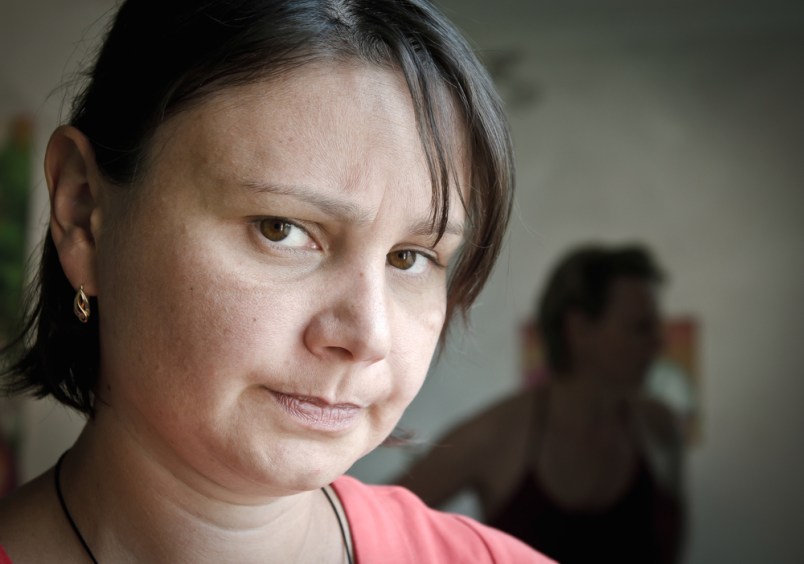This month we celebrate two important anniversaries: On Jan. 8, our country observed the 50th anniversary of the War on Poverty and today we celebrate the 41st anniversary of Roe v. Wade, the Supreme Court case that legalized abortion in the United States. However, this month also saw the first hearing of the year by a subcommittee of the House of Representatives on a bill called the “No Taxpayer Funding for Abortion Act.” At first glance, these events may seem entirely unrelated, but they are actually intimately intertwined.
They are connected in the lives of women like Erica,* a young woman in Pennsylvania who found herself pregnant with few resources. Already the mother of a preschool-aged child, she had been dis-enrolled from welfare when she could not get to a work training session because of a public transportation strike. While trying to get re-enrolled, she was evicted from her apartment because she couldn’t afford to pay rent. Although she received health insurance through Medicaid, that program excludes coverage for abortion care in all but the most limited circumstances. Lacking money to pay for an abortion, she told a counselor, “I’m thinking of ways I can fall or what I can do to end this pregnancy [myself].”
According to the “Shriver Report: A Woman’s Nation Pushes Back from the Brink,” 42 million women live “a single incident — a doctor’s bill, a late paycheck, or a broken-down car — away from economic ruin.” Another incident that can send a low-income woman and her family into economic free fall is an unintended pregnancy.
Indeed, three-fourths of women who have an abortion cite their inability to afford a child as a leading reason for their decision. Poor women are 5 times as likely as higher-income women to have an abortion and 42 percent of the women who have abortions in the U.S. are poor.
Yet in a perverse irony, Congress denies coverage for abortion care to women enrolled in Medicaid, our government’s health insurance program for the poor, under a policy known as the Hyde Amendment. That so many poor women manage to obtain an abortion despite barriers like the Hyde Amendment is merely a testament to their determination to follow through with their decision to end a pregnancy.
Erica was fortunate enough to be able to borrow money from a family member and obtain assistance from a charitable abortion fund in order to finance her abortion, but approximately one out of four women in similar situations are forced to carry a pregnancy to term in precarious circumstances. Indeed, a recent study revealed that a woman who seeks an abortion and is turned away is three times as likely to fall into poverty as a woman who obtains an abortion, rendering both Roe and the War on Poverty empty rhetoric for them.
I am in no way suggesting that greater access to abortion care on its own would keep women out of poverty or that women should have abortions to stay out of poverty. On the contrary, we need to do much more to ensure that low-income women have the resources they need to bear and raise the children they want. But strategies to keep women out of poverty cannot overlook access to abortion care, among other reproductive health needs such as contraception, prenatal care and screening and treatment for reproductive cancers and for HIV and other sexually transmitted infections.
Put simply, the anti-poverty agenda — housing, health insurance, education, supplemental nutrition, a living wage, paid sick and family leave, child care and reliable public transportation — is incomplete without affordable, comprehensive reproductive health care, including abortion care. After all, the woman struggling to pay for an abortion is also the woman trying to find or maintain employment, avoid eviction and feed her children.
For 50 years opponents of economic justice have demonized poor women’s childbearing as the cause of their poverty and for 37 years abortion opponents have exploited poor women’s economic vulnerability as a way to interfere with and punish their decision to have an abortion. This latest bill moving briskly through the House would extend abortion coverage restrictions to virtually all women and, in doing so, put the financial security of even more women and their families at risk — all while Congress drags its feet on restoring unemployment insurance benefits.
This war against poor women has led to a tattered and torn safety net. But we can repair it by advocating for economic and reproductive justice together, by standing up to the constant attacks on abortion and contraception, and by developing proactive measures that promote a vision of poor women’s self-determination alongside their self-sufficiency. The War on Poverty will never be won, and the reproductive rights of all women will never be secure, until we do.
*not her real name
Jessica Arons is the President and CEO of the Reproductive Health Technologies Project, which is a sponsor of the All* Above All campaign.
—
“Stock Photo: Family Troubles.” on Shutterstock






